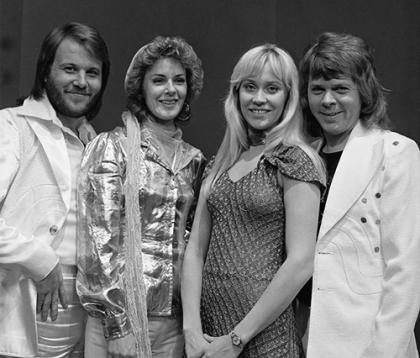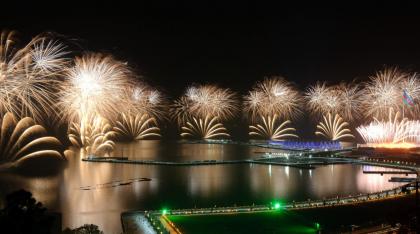Fun Facts About the Eurovision Song Contest
Right now, singers and bands from all over Europe are gathering in Malmö, Sweden, for the Eurovision Song Contest 2013. Eurovision is one of the world's longest running TV talent shows, and has been broadcast since 1956. Here are a few fun facts about Eurovision that we've dug up:
Eurovision has launched lots of successful artists
Lots of singers and bands that you may remember (and some we'd like to forget) started their careers at a Eurovision Song Contest. The most famous of these is ABBA, who won in 1974 with their hit, "Waterloo". Other famous singers to come out of Eurovision were Céline Dion and Julio Iglesias (father of Enrique Iglesias).

It started as a way to cheer Europe up after World War II
The European Broadcasting Union decided that we all needed some cheering up after World War II, and wanted to try to bring European countries together with a "light entertainment program". This type of television program, with lots of acts competing in a live TV event, had never been tried before.
Nobody had any idea how to do it
Nothing like Eurovision had ever been done before. Europe had not worked together very well on anything this big before, and satellite television didn't even exist. The name Eurovision came from the network of cables that carried television signals around Europe.
One Country, One Song, One Act
The minor rules have changed over the years, but this has always been the main idea. Each country submits a song, which is performed by that country's chosen performer or group, on a live television contest that is broadcast live to all participating countries. Each country then votes on the other countries' songs, and nobody is allowed to vote for them self.
It's old, but not the oldest...
The oldest television talent contest is actually the Amateur Night at the Apollo Theater in New York City. It has been running since 1934, and was where Ella Fitzgerald was first noticed. It wasn't always broadcast, however, as the technology was too expensive back then.
After running for more than half a century, there's a lot more to say about Eurovision Song Contest. Share your knowledge of Eurovision in the comments!

